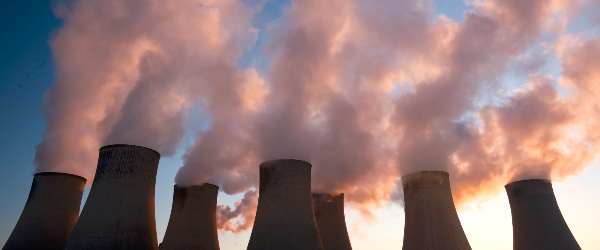Webinar: "The End of Coal: Learning from the success of Ontario’s coal phase-out"
The question is not if coal will be phased out from our energy systems, but how. To explore this question, IISD hosted a web-based discussion of lessons learned from Ontario’s successful coal phase-out on June 30.

The question is not if coal will be phased out from our energy systems, but how. To explore this question, IISD hosted a web-based discussion of lessons learned from Ontario’s successful coal phase-out on June 30.
You can find out more and listen to a recording of the webinar here.
The webinar drew on IISD’s new report “The End of Coal: Ontario’s coal phase-out” that analyses the context, the champions, the concerns and arguments as well as the complementary policies that made coal phase-out possible in Ontario. The speakers include both those who led Ontario toward and through the coal phase-out and those who are interested in replication of this success internationally.
The speakers were:



About IISD
The International Institute for Sustainable Development (IISD) is an award-winning independent think tank working to accelerate solutions for a stable climate, sustainable resource management, and fair economies. Our work inspires better decisions and sparks meaningful action to help people and the planet thrive. We shine a light on what can be achieved when governments, businesses, non-profits, and communities come together. IISD’s staff of more than 250 experts come from across the globe and from many disciplines. With offices in Winnipeg, Geneva, Ottawa, and Toronto, our work affects lives in nearly 100 countries.
You might also be interested in
This Is What Young People Have to Say About INC-5
The treaty must address the entire life cycle of plastics, youth tell INC-5 negotiators. We couldn’t agree more.
COP 29 Outcome Moves Needle on Finance
In the last hours of negotiations, concerted pressure from the most vulnerable developing countries resulted in an improved outcome on the finance target, with a decision to set a goal of at least USD 300 billion per year by 2035 for developing countries to advance their climate action.
Stabilization Clauses: The hidden provisions that can hinder tax and investment policy reform
Stabilization clauses should no longer automatically be included in contracts between states and investors. If they are, they should, at a minimum, build on the latest international standards on stabilization to avoid being a barrier to sustainable development.
Why Trade Matters in the Plastic–Pollution Treaty Negotiations
The global push to end plastic pollution by 2040 highlights the critical intersection of trade and environmental action, with upcoming INC-5 negotiations focusing on reducing plastic production, consumption, and waste within a fair and effective international framework.